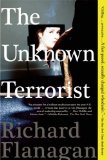Summary | Excerpt | Reviews | Beyond the Book | Readalikes | Genres & Themes | Author Bio

A Novel
by Richard Flanagan
The truth was that Ferdy had left his job at a pearl oyster
hatchery in Broome a decade earlier with a bootload of
Kimberley dope. He drove two thousand kilometres south,
traded the dope and made enough to refill the boot with
ecstasy he got through a contact in the Gypsy Jokers. He
crossed the interminable length of the Nullarbor and made
his way along the Great Ocean Road.
He liked to say he arrived in Melbourne in a ’73 Charger
and left it a month later in a ’96 Beemer, making his way in
that same year to Sydney, where he bought a half-share and
the job as manager of a run-down bar, and invested what was
left of his new wealth on refitting the bar with felt-lined
tables and brass poles in the manner of the pole dancing
clubs that were then becoming so popular. He would later
recall those early years with the tone of feigned humility so
many self-made men feel necessary:
“We had our hopes.”
Hopes were unnecessary, for the times, as he frequently told
his customers,were his. In the Broome oyster hatchery he had
spent the first fifteen years of his working life as a technician
breeding vats of microscopic algae to be fed to juvenile oysters.
All that mattered in that job had been getting several constants
right, and thereafter never varying them. Ferdy applied the
same principles to his management of the Chairman’s Lounge.
For he, a man come out of the red mystery of the Kimberley’s
pindan dust into the blue certainty of the Kings Cross
night, sensed in Sydney that the possibility of human community
was a pointless dream, that cities revealed that men
shared with algae the most natural destiny: meaninglessness
confused by the inexplicable need to live. There were no
words for any of it, but a pole dancing club seemed to him a
better place than an algal fermentation vat to watch its cracked
unravelling. That was what Ferdy felt. What he said, on the
other hand, was banal, but not without its own related truth.
“It’s all in the show,” Ferdy would say.
And indeed it was.
Until the moment, a little after 7 pm, that he walked along
the red carpet of the Chairman’s Lounge, headed down past
the purple neon tubes and pulled from his Armani pants’
pocket a twenty-dollar note to pay a smiling woman the
entry fee, Richard Cody’s day had been unhappy. He had
slept poorly,woken to yet one more argument with his wife,
then been called out by Six’s news producers to anchor the
live crosses from a terrorist bomb scare at Homebush
Olympic stadium.
There was a new makeup girl who had made his hair
look ridiculous, then the OB van kept losing contact with
the studio on the live crosses, and the whole story in any
case quickly grew repetitive, then pointless: three bombs had
been found, each in a kid’s backpack.The crowd was evacuated,
the area sealed off. Nothing else would happen now.
He had continued saying the same thing over and over
with his stupid hair and the studio dropping in and out, while
a string of so-called experts—mostly consultants wanting a
job as an expert in security, terror, politics—commented on
each other’s remarks, which in turn repeated and elaborated
the few brief comments made by the police and government
spinners, all pretending that in this vortex of nonsense might
be found some sign predicting what might next occur.
Only his Armani summer suit didn’t let him down,
enduring the heat without crease or crumple. In middle age
he had taken refuge in elegance, even when the temperature
had not dropped below thirty-eight for five days and the
humidity was stuck at ninety-four per cent. As his body
thickened and leathered, as his hair thinned, Richard Cody
believed his fine clothes helped assert a persuasive idea of
himself as charming, sophisticated, clever: in short that his
agreeable clothes helped the world concur with his agreeable
idea of himself.
Excerpted from The Unknown Terrorist by Richard Flanagan © 2007 by Richard Flanagan. Excerpted by permission of Grove Atlantic. All rights reserved. No part of this excerpt may be reproduced or reprinted without permission in writing from the publisher.
Dictators ride to and fro on tigers from which they dare not dismount. And the tigers are getting hungry.
Click Here to find out who said this, as well as discovering other famous literary quotes!
Your guide toexceptional books
BookBrowse seeks out and recommends the best in contemporary fiction and nonfiction—books that not only engage and entertain but also deepen our understanding of ourselves and the world around us.